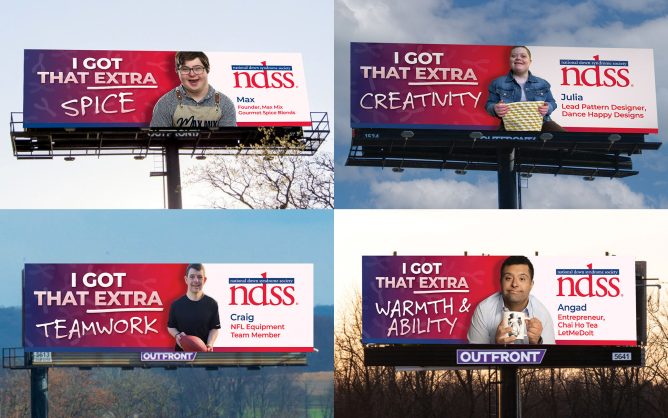Networking is a crucial aspect of professional growth, particularly for professionals. It opens doors to opportunities, partnerships, and resources that might otherwise remain out of reach. For professionals with disabilities, navigating the business world presents unique challenges, such as accessibility issues, overcoming bias, and finding inclusive spaces; with the right approach, these hurdles can be surmounted, and networking can become a powerful tool for success. The business world is a vast, interconnected landscape, and building a solid network is essential for career advancement and personal growth. This two-part series will explore practical strategies specifically tailored for professionals with disabilities to help them maximize their networking potential.
Understanding the Importance of Networking
Networking is about more than just exchanging business cards or connecting on LinkedIn. It’s about cultivating relationships with people who can provide insights, support, and opportunities. For professionals with disabilities, networking can open doors to mentorship, advocacy, and career opportunities that may not be readily available through traditional routes. Moreover, networking allows you to demonstrate your skills, knowledge, and unique perspective, challenging misconceptions about disability professionally. Let’s now explore some useful networking strategies for professionals with disabilities.
1. Leverage Online Networking Platforms
The rise of digital platforms has made networking more manageable and more accessible for all professionals, especially for those with disabilities. Unlike traditional in-person events, which may present accessibility challenges, platforms like LinkedIn offer the opportunity to connect with industry leaders, peers, and potential collaborators without leaving your workspace. You can start leveraging online platforms by engaging on the following
A. Start by optimizing your LinkedIn profile
Your profile is your digital introduction to the world. Ensure it highlights your key strengths, experiences, and unique insights as an entrepreneur with a disability. Emphasize your achievements and skills, showcasing the value you bring to your industry. This will help attract connections who are eager to support or collaborate with you, and may also raise awareness of the contributions entrepreneurs with disabilities can make.
B. Join relevant online groups.
Numerous online communities on platforms like LinkedIn groups, Facebook groups, and other specialized forums focus on professionals or entrepreneurs with disabilities. By engaging in these groups, you can meet others who face similar challenges and share experiences. These groups are often filled with valuable resources, advice, and networking opportunities that could lead to partnerships, collaborations, or mentorships.
C. Attend virtual events
Virtual events such as webinars, online conferences, and meetups offer fantastic networking opportunities. Many of these events now provide accessibility features like closed captioning, ASL American Sign Language, or transcripts, making them more inclusive. By attending, you can engage with thought leaders, ask questions, and make connections, all from the convenience of your workspace.
2. Be intentional with In-Person Networking
While online networking has become more accessible and widespread, in-person networking still offers unique benefits that can be invaluable for building professional relationships. For professionals with disabilities, attending physical events may present challenges, but with the right preparation, the experience can be made more manageable and worthwhile. You can be intentional about your personal networking by:
A. Researching accessible events.
When considering attending an event, make sure to research the accessibility of the venue and event format ahead of time. Look for conferences, workshops, and meetups that explicitly promote inclusive environments, offering amenities like ramps, accessible seating, sensory-friendly spaces, or even hybrid options that allow you to participate virtually if needed. This ensures you are comfortable and can engage fully during the event.
B. Communicating your needs.
Don’t hesitate to reach out to event organizers in advance to clarify any accessibility accommodations you may require. Whether it’s accessible transportation to the venue, wheelchair access, seating preferences, or assistive technologies. Clear communication about your needs will help ensure a smoother experience. Addressing these concerns before the event allows you to focus on making valuable connections rather than worrying about logistical challenges.
C. Building smaller networks.
Large-scale events can sometimes be overwhelming and not always designed with accessibility in mind. In these cases, attending smaller, more targeted meetups or industry-specific gatherings can provide a better opportunity to engage in meaningful conversations and form genuine connections. These intimate settings can foster deeper networking relationships and allow you to showcase your expertise more effectively.
3. Use Your Disability as a Networking Strength
One of the most empowering ways for professionals with disabilities to navigate the business world is by reframing their disability as an asset rather than a barrier. The unique experiences you’ve gained as a result of your disability provide a fresh perspective and insight that others in your industry may lack. By embracing your narrative and using your journey as a conversation starter, you can transform potential challenges into opportunities for connection and growth by:
A. Embracing storytelling.
When introducing yourself or discussing your business, share your personal journey as part of the conversation. Storytelling is a powerful tool, and people are often drawn to those who are open about their experiences. By sharing how your disability has shaped your entrepreneurial path, you can create more meaningful connections and leave a lasting impression on your audience. Authenticity is key, and your story can inspire others while highlighting the resilience and creativity you bring to your work.
B. Be confident in your skills.
It’s important to remember that your disability does not define your capabilities. When networking, always lead with your strengths and expertise, ensuring that the conversation centers around your professional skills. Confidence in your abilities will reinforce that you are a strong and competent entrepreneur, while your disability adds a unique perspective rather than detracting from your potential.
Are you an entrepreneur with a disability looking to succeed despite the challenges? Join us on my Patreon platform at www.patreon.com/coachtrish, where I provide valuable insights, tools, and strategies designed specifically for entrepreneurs like you. Let’s build a thriving business together, no matter the obstacles! Your journey to success starts here.




